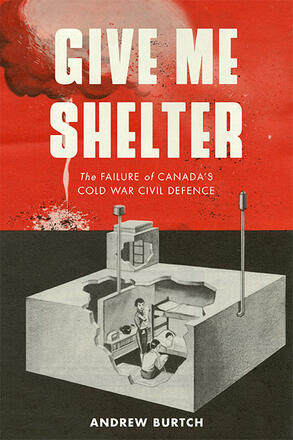
Based on evidence from recently opened document collections, Give Me Shelter uncovers the myriad reasons for the failure of Canada’s nuclear civil defence efforts during the Cold War.
Description
How could you and your family survive a nuclear war? From 1945 onwards, the Canadian government developed civil defence plans and encouraged citizens to join local survival corps. By the time of the Cuban Missile Crisis, the civil defence program was widely mocked, and the public was still vastly unprepared for nuclear war. An exposé of the challenges of educating the public on the threat of nuclear annihilation, Give Me Shelter provides a well-grounded explanation of why Canada’s civil defence strategy ultimately failed. It is essential reading for anyone interested in Canada’s Cold War home front.
Awards
- Winner, C.P. Stacey Award for scholarly work in Canadian Military History 2012
- Commended, The Hill Times List of Top 100 Best Books 2012
Reviews
Luckily, the Soviets never did bomb us or we would not be around to read Give Me Shelter, an extremely detailed and shocking analysis of how a government and its people failed to connect and collaborate on one of the most important issues facing the world during the Cold War … the book is scarier than science fiction because it shows how unprepared we were to save our own skin had the Russians ever decided to attack.
- Paul Gessell